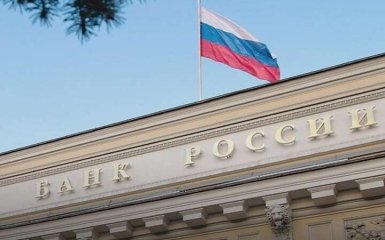Kremlin officials are threatening their Western partners with an allegedly harsh response in the event of confiscation of frozen assets.
How can Russia respond to the West's confiscation of frozen assets
Journalists and analysts note that the Kremlin plans to confiscate the funds of private investors that have been blocked.
According to the majority of interviewed economists, lawyers and experts, one of the most likely answers will be the confiscation of financial assets and securities of foreign investors currently held in special accounts.
Thus, payments for blocked assets on these accounts can begin to be confiscated in favor of the state.
In addition, the Russian government may consider blocking non-exchange-traded assets that still belong to "unfriendly countries." These assets include taxes, grants and private donations.
At the same time, as the journalists of the publication note, prior to this, the Deputy Head of the Security Council of the Russian Federation, Dmytro Medvedev, called for the confiscation of Russian assets of private individuals in response to any confiscation of Russian reserves by the United States.
Can Russia confiscate Western assets?
However, after the introduction of large-scale sanctions against Russia by Western countries, foreign assets and investments in its territory decreased by approximately 40%, to 696 billion dollars.
Moscow has also already forced foreign companies selling assets in Russia to do so at a discount of at least 50%.
It placed other Western assets under temporary management and appointed managers friendly to the Kremlin.
Russia has already seized branches of Western companies, often for nothing. But the value of seized assets lies not only in buildings and machines, but also in technologies, know-how and connections, experts emphasise.
The authors of the material emphasise that the Kremlin also pressures and tries to influence the policy of EU countries, where a large part of Russian reserves are stored in the Brussels depository Euroclear.
According to a number of European politicians, the confiscation or use of profits from frozen assets of the Russian Federation could harm the euro if other countries, such as China, begin to repatriate reserves as a precaution against being attacked in the future.
There is also the risk that Russia could try to seize Euroclear's funds in securities vaults in Hong Kong, Dubai and other countries through the courts. This could lead to the depletion of Euroclear's capital.
More on the topic
- Category
- Politics
- Publication date
- Додати до обраного


